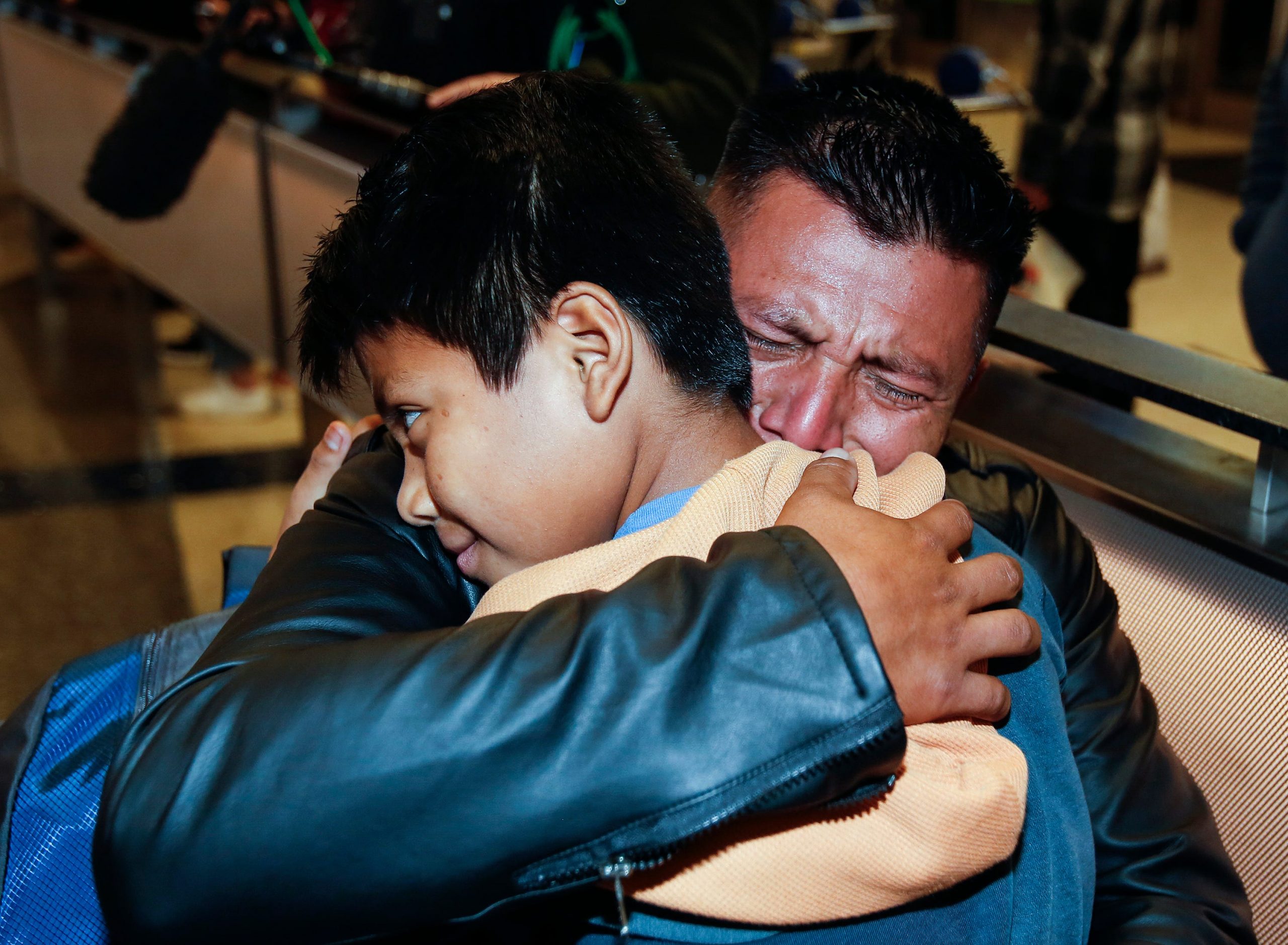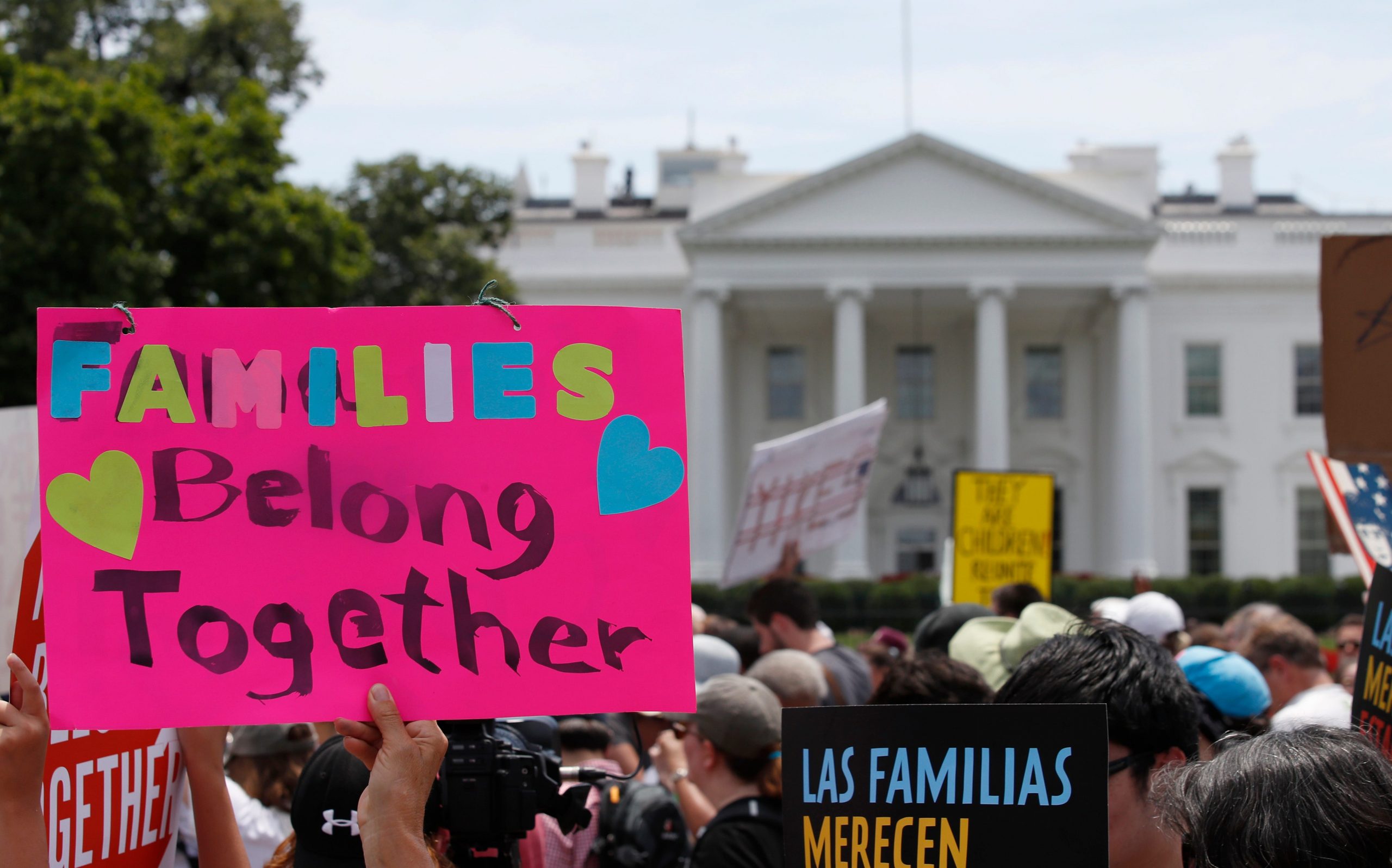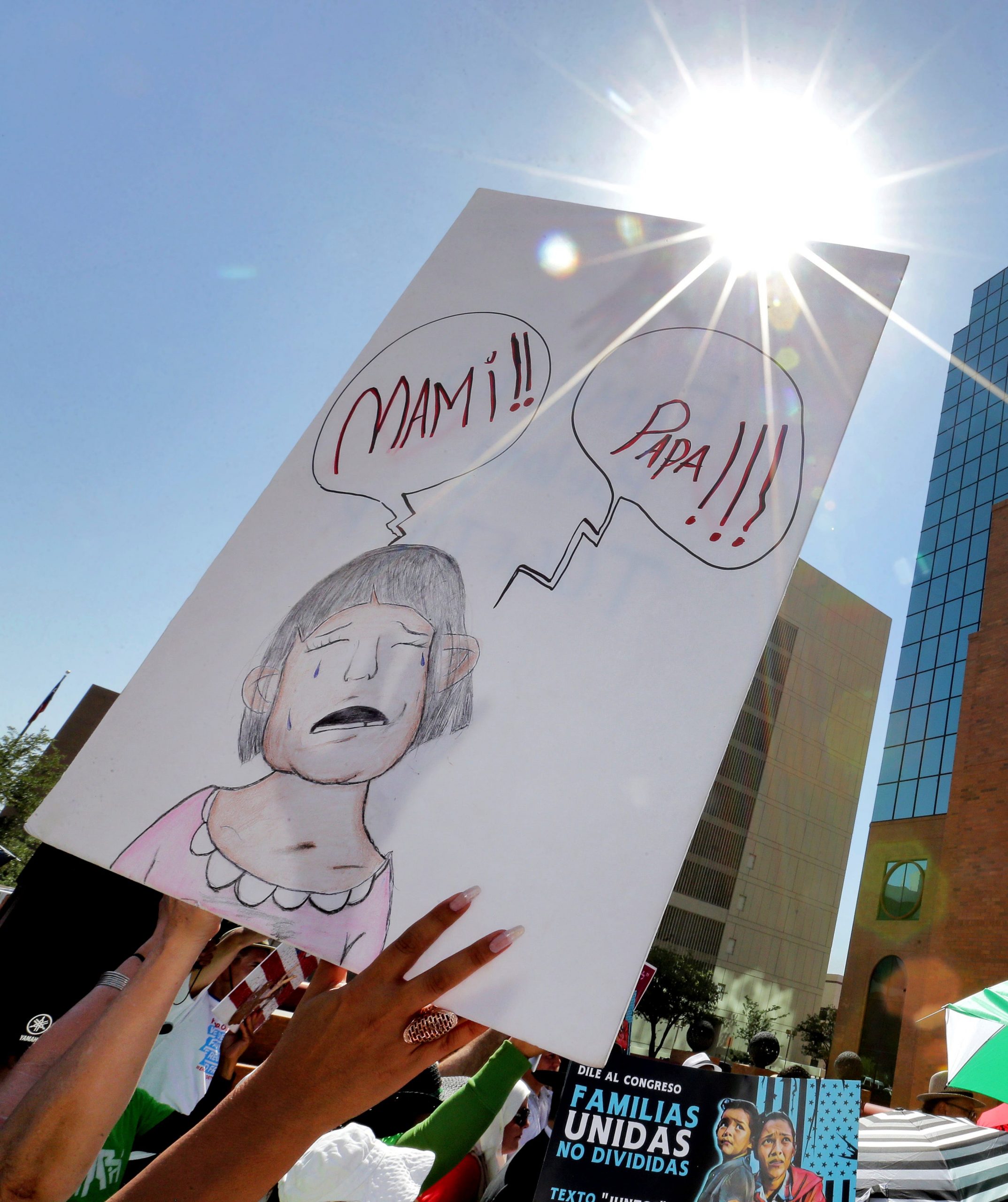
Ringo H.W. Chiu/AP
- Long after the Trump administration’s family separation policy was stopped, many parents have yet to be located. The Biden administration has inherited the effort.
- Advocates look for clues and scour incomplete records. In the worst case scenario, a note might be as vague as “José, sent back to Guatemala.”
- No one expects that advocates will find every parent, but they hope, in time, to locate most of them.
- Visit the Business section of Insider for more stories.
Dora Melara has led painstaking searches in Honduras to find dozens of parents separated from their children under the Trump administration’s zero tolerance immigration policy.
“One of the difficulties we have is that you’ll go to the reference address and maybe the person never went back there,” Melara told Insider. Or, “there’s a possible address, not even exact.”
She has also seen “whole families crying” over video chats she sets up between parents in Honduras and their child in the United States, sometimes as siblings chime in: “Look how big you are, look how much you’ve grown!”
The Trump administration’s family separation policy was relatively short-lived. But the process of locating the parents and reuniting families has dragged on. Now, it falls on the Biden administration to complete the untangling of the policy and address the lasting impacts of trauma. On Tuesday, President Joe Biden is expected to announce the creation of a task force that will recommend how to “reunify families,” according to a fact sheet.
“I’m still hopeful that the vast majority of people are going to be found,” Cathleen Caron, the executive director of Justice in Motion, part of the steering committee tasked with locating parents, told Insider. “It’s impossible to guarantee that every single parent will be located. But we haven’t given up on any of the parents yet, either.”
Advocates describe reunification as an exquisitely delicate process of tracking clues and false starts, deploying on-the-ground connections and local expertise, all while navigating enormous mistrust and a maze of bureaucracy spanning multiple countries.
It is often tedious work, with investigators combing through every available scrap of government data that might point to where the parents ended up and how to reach them, and experts who can coordinate extraordinary outreach efforts over local radio and mail. And finally, it requires people like Melara, who do the sensitive work of tracing clues and building trust.
"José, sent back to Guatemala"
From April to June 2018, roughly 2,800 children were taken from their parents during the now-infamous zero tolerance policy, while around 1,100 kids were caught up in pilot programs that started in late 2017.
In 2018, in response to a lawsuit by the American Civil Liberties Union, a federal judge halted the separations and ordered the government to locate the families and offer the chance to reunite. But the effort has dragged on, hampered by shoddy record keeping, stale data, natural disasters and the coronavirus pandemic, and parents' lingering misgivings about the government's earnestness in seeking to help them.

Alex Brandon/AP
So far, around 2,000 kids separated under the formal policy have been reunited with their parents, and almost 600 are either with sponsors in the U.S. or have reached adult age. Late last year, it was revealed that the parents of over 600 children separated during the pilot programs had yet to be contacted at all.
According to the latest status report, from mid January, of the 611 children whose parents have yet to be found, 392 of them have had their parents deported..
From the get-go, the federal government never created records that would be typical when a family enters custody. Children's files and legal proceedings were established as if they had entered the country alone.
Since then, government lawyers have been tasked with scouring records from the Departments of Homeland Security and Health and Human Services to discover, first, which children in its custody arrived with their parents, and whether files for those family members can be located.
"The data has been so spotty. It's obvious that recording families, tracking them in any meaningful way to facilitate reunification... was not a concern, not a priority, not done," said Leah Chavla senior policy advisor at the Women's Refugee Commission.
The group, along with the nonprofit groups Kids in Need of Defense and Justice in Motion and the law firm Paul, Weiss, Rifkind, Wharton & Garrison, which has a coordinated role, form a steering committee tasked with finding parents. Putting non-profits in the lead was a deliberate choice since government representatives would not necessarily be trusted.
Each group has a certain expertise. Justice in Motion, for example gets involved "when the information is really bad, there's no phone numbers, people aren't responding, people don't want to speak," said Caron. The worst case scenario, she said, might be a note as vague as "José, sent back to Guatemala."
Getting even basic data has not been easy. A highly consequential database from the Justice Department office that oversees immigration courts -- which advocates knew existed and had requested repeatedly -- was only produced last November. Government lawyers said they had not intended to withhold the information, and blamed the delay on not understanding what the committee required.
"I had written emails to the government in August 2019 asking for all of the phone numbers that they had," said Steven Herzog of Paul, Weiss. "They said, 'you have everything we have.' And we didn't have everything that they had. And now, a year and a half later, we got more. And now that data is a year-and-a-half older, and it's more stale, and many of the phone numbers don't work."
A "heart wrenching" decision
Further complicating the effort is the fact that most of the parents are not themselves eligible to return to the U.S., and many had compelling reasons to ensure that their children did not remain in their home countries.
Once a person is deported, as many of the parents separated under the pilot programs were, they are largely blocked from re-entering the country or seeking status. In these cases, reunification is only possible if the children also leave the United States. In the latest status report, filed on Jan. 13, 103 parents out of a total of 261 who'd filled out election forms decided not to avail themselves of the settlement.

Matt York/AP
"It's a heart-wrenching type of decision when your choices are to have the opportunity to have your child reunited with you, but it has to be that they're brought back to a situation that you yourself are afraid of," said Herzog, the lawyer at Paul, Weiss. "That does very much limit the options they have."
A large number of the children have petitioned for asylum and might remain with their sponsors, who are often family members. There's a chance they can win their own cases and lead relatively normal lives in the U.S. But they may have no hope of seeing their parents again.
Advocates are pushing for Biden to create a pathway for the parents to return with legal status, which could theoretically be done with executive action, or through Congress. Part of Biden's larger immigration legislative proposal could include measures targeting these specific families, but some GOP legislators have already balked at the entire bill
Reunifications in the United States might be the best possible outcome, but it's difficult to measure the long term impacts of the trauma faced by children being torn apart from their parents. They could range from permanent brain damage, especially for the youngest children, to difficulty rebuilding their relationships and lingering resentment.
"They feel responsible"
But first, the parents have to be found, and the effort only gets more difficult with time: People change their phone numbers, move houses, resettle in entirely different parts of the country.
This is why advocates have warned against simply throwing resources at the problem. What is needed, they say, is a meticulous effort of combing through every available source of data for every scrap of information that might point to where the parents are and how to reach them.
For those like Melora, in Honduras, the going was already tough before 2020. But the coronavirus pandemic and hurricanes that slammed the region late last year have proved catastrophic. The recovery has been slow, and the on-the-ground investigators have largely found themselves on their own, without robust government support.
"Even today, there are places you have to travel very carefully because the roads are only one way, since a mudslide took the rest," Melara said. A general curfew throughout Honduras stopped Melara's outings for months, and even now there are limitations on movement, both legal and practical.
"There's a father we'd already located, but we couldn't get there because there was no longer any road access. Other parents were also very affected by the flooding, and some had to go to temporary shelters," she said.
Some of the parents, who had been seeking asylum because they were fleeing threats of violence, went into hiding, making them much harder to locate.
When she does finally make contact, Melara said, there is a human toll that families are reckoning with. Some have had no contact with children for years, and are living with the effects of traumas they have endured and often a deep sense of guilt. "They can feel responsible for what they lived through," she said.
Still, she said that, once found, almost all of the parents eventually warm up to her.
"They're happy to know that there are people out there who are interested in meeting them, talking to them, knowing their story," she said